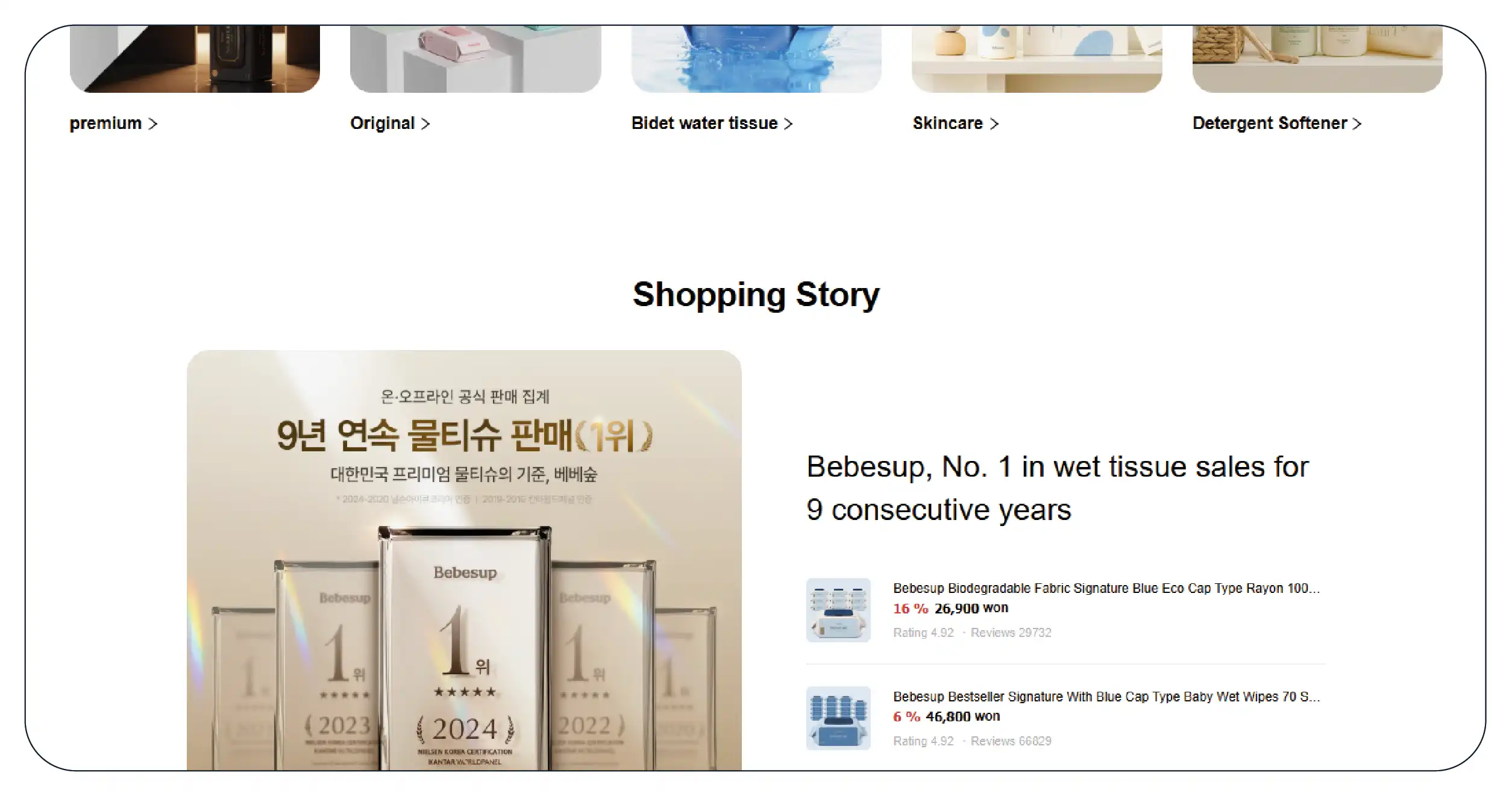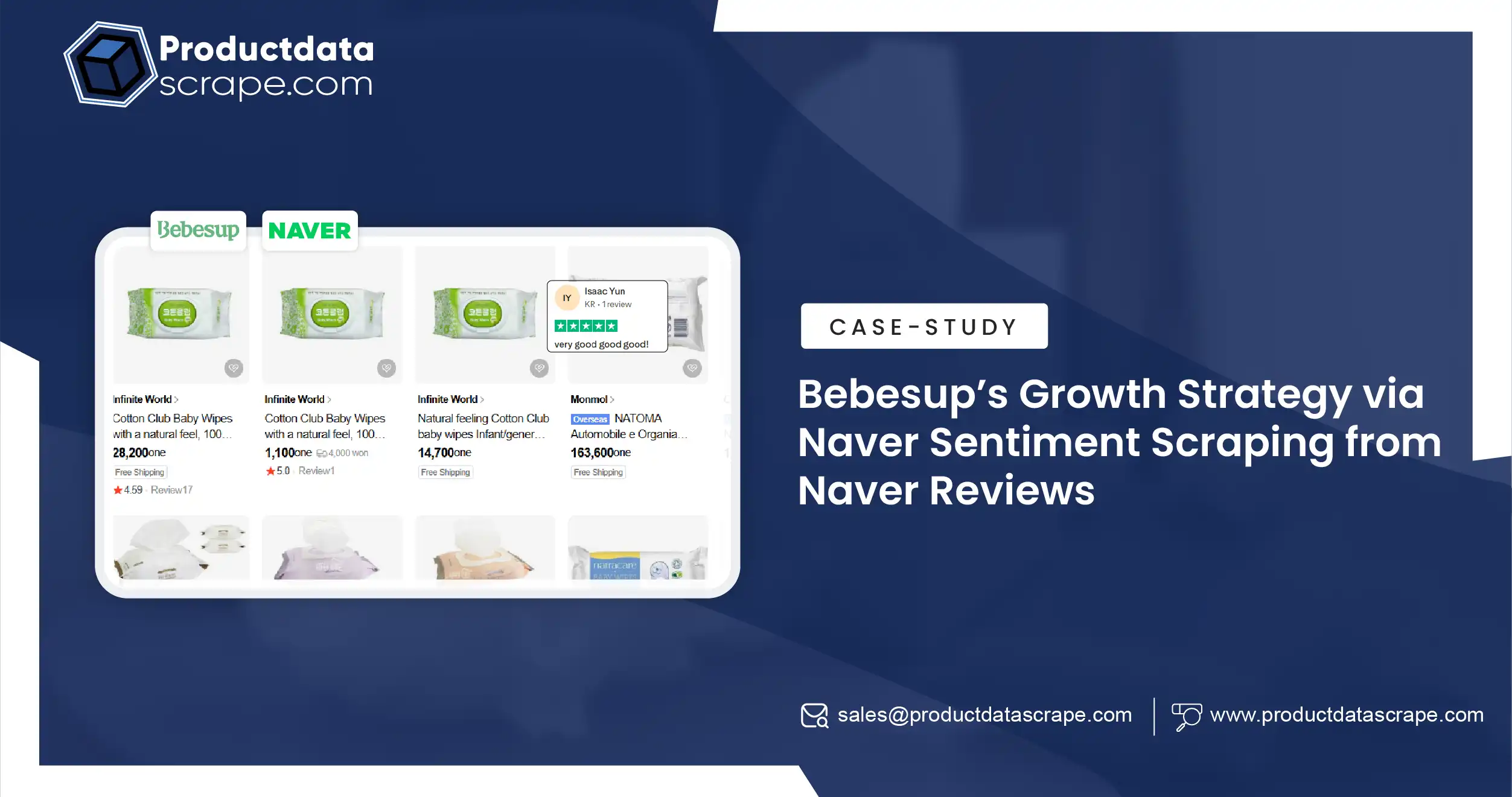Introduction
South Korea’s highly competitive baby product industry demands strategic data-driven approaches to maintain market relevance and accelerate brand loyalty. A leading Korean baby care brand aimed to better understand evolving consumer perceptions across digital ecosystems. Recognizing that a significant portion of Korean consumers share experiences via blogs and community platforms, the company explored Bebesup’s Growth Strategy via Naver Sentiment Scraping to decode customer sentiment directly from Naver Blog reviews. This initiative helped the client translate unstructured reviews into product-specific feedback, guiding marketing, product refinement, and positioning strategies to outpace local and global competition.
The Client
The client is a South Korea-based premium baby wipes manufacturer competing closely with Bebesup in the hygiene and skincare space. With a vision to deliver clean, safe, and eco-friendly products for infants and toddlers, the brand sought to understand Korean parental preferences, concerns, and value triggers. Their goal with Bebesup’s Growth Strategy via Naver Sentiment Scraping was to uncover gaps in their own product line and reposition their marketing narratives based on real user experiences expressed through Naver Blog content.
Key Challenges

Despite a strong presence in both retail and eCommerce channels, the client faced challenges decoding fragmented feedback shared across Naver Blogs. Their existing customer analytics only covered internal sources like surveys and reviews from their website. However, the emotional nuance and unstructured nature of external blogs made traditional keyword analysis ineffective. Korean consumer sentiment data scraping for Bebesup was essential to benchmark customer reactions and feature preferences. Additionally, the absence of a system to differentiate product feedback (like fragrance, material quality, or skin reactions) hindered fast, data-backed decision-making. The client also wanted Naver data extraction for baby product sentiment from key consumer segments—new parents, caregivers, and family bloggers.
Key Solutions

Product Data Scrape implemented a scalable pipeline for Naver Data Scraping for E-Commerce Sentiment Insights, targeting blogs, Naver Shopping listings, and review-rich content. Our strategy enabled granular insights aligned with Bebesup’s Growth Strategy via Naver Sentiment Scraping, where competitor mentions, parental complaints, and product praise were tagged and classified using NLP. We also helped extract product data from Naver Shopping website, such as ranking trends, discount performance, and average star ratings. The data architecture allowed the client to create heatmaps of regional performance. Additionally, we scraped Naver discount coupons and promotional triggers to shape competitive pricing plans. Product Data Scrape further supported web scraping for market research South Korea, capturing consumer conversations about wipes, lotions, and diapering aids across Naver. With this foundation, the client could optimize product design and influencer campaigns, mirroring the tactics used in Naver Sentiment Scraping for Bebesup Growth to drive parallel success.
Client’s Testimonial
“We gained incredible visibility into how Korean parents perceive baby care brands. Product Data Scrape’s advanced sentiment scraping model helped us compete against Bebesup with actionable, timely insights.”
— Head of Digital Strategy, Korean Baby Product Brand
Conclusion
Bebesup’s Growth Strategy via Naver Sentiment Scraping has inspired a strategic pivot for other Korean baby care brands. By adopting similar data-driven practices, our client tapped into emotional and topical triggers within parent communities. Using web scraping e-commerce websites to monitor the voice of the customer, the brand now enjoys faster innovation cycles and more resonant campaigns. From extracting customer feedback on Bebesup from Naver to generating insights for their own product roadmap, the transformation is proof that sentiment-led eCommerce intelligence works. This use case highlights how digital-native solutions like Extracting fashion and apparel data, eCommerce product datasets, and Naver review analytics can create competitive advantages in saturated markets.



















.webp)
.webp)

.webp)